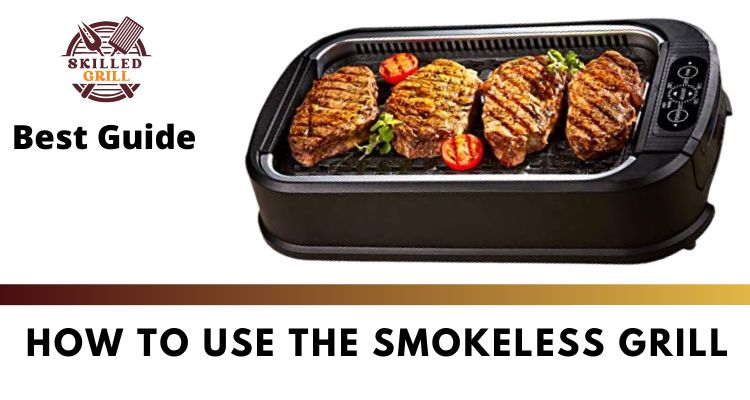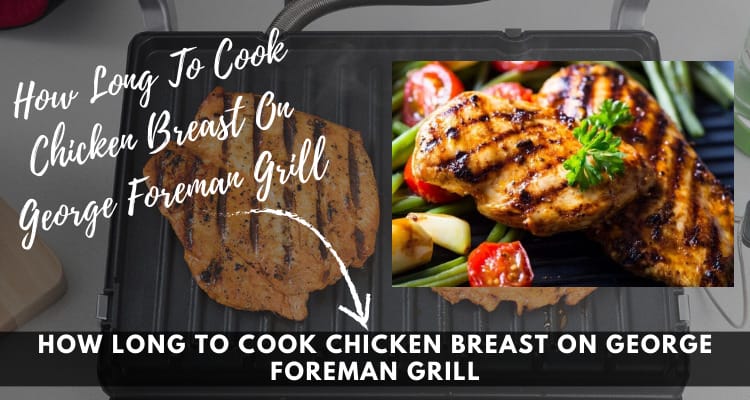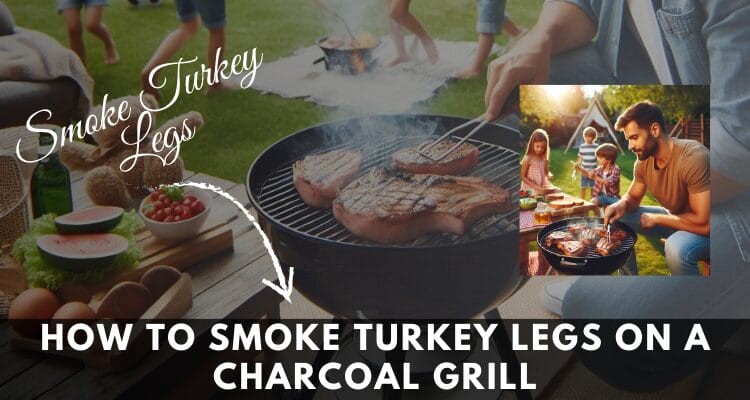Can You Use Regular Charcoal In A Gas Grill
If you own a gas grill, you may have wondered if it’s possible to use regular charcoal instead of the usual gas or propane fuel.
Yes, you can use regular charcoal in a gas grill. However, it is not recommended as the high heat and airflow of a gas grill can cause the charcoal to burn too quickly, affecting the flavor of your food. It is best to use lump charcoal or briquettes specifically made for gas grills.
In my experience, using regular charcoal in a gas grill can be risky. The high heat of the gas flame may cause the charcoal to burn faster and create uneven cooking results.
It’s best to stick with recommended fuel sources for your specific grill for optimal performance. So, it is not advisable to use regular charcoal in a gas grill.
In this article, we will discuss the reasons why using regular charcoal in a gas grill is not recommended and what alternatives you have to achieve that smoky flavor in your food.
So Let’s Dive in,
Why You Should Not Use Regular Charcoal In A Gas Grill
Using regular charcoal in a gas grill can be problematic for several reasons. First and foremost, gas grills are designed to function with specific fuel sources, such as propane or natural gas.
These fuels provide consistent and even heat, allowing for better control over the cooking process.
When using regular charcoal in a gas grill, the high heat can cause it to burn too quickly. This not only affects the flavor of your food but also creates a safety hazard as well.
The rapid burning of charcoal may cause flare-ups and uneven cooking, leading to potential food safety issues.
Moreover, gas grills have a different airflow system than charcoal grills. This can result in the charcoal burning too quickly or not getting enough oxygen to sustain a consistent temperature.
As a result, you may end up constantly adjusting the heat and struggling to maintain an even cook.
Another factor to consider is that regular charcoal may contain chemicals and additives that are not safe for cooking.
Charcoal briquettes, for example, often contain binders and fillers that can release harmful fumes when burned at high temperatures.
Compatibility of Regular Charcoal with Gas Grills
While it is not recommended to use regular charcoal in a gas grill, some models have the option to convert from gas to charcoal.
These grills typically come with additional attachments or trays that allow you to add charcoal alongside the gas burners.
However, this conversion process can be time-consuming and may require specific parts for your particular grill model.
It is important to carefully follow the instructions provided by the manufacturer and make sure all parts are compatible before attempting to use regular charcoal in your gas grill.
Benefits of Using Regular Charcoal in a Gas Grill
There are a few benefits of using regular charcoal in a gas grill, such as achieving that smoky flavor in your food.
But as mentioned earlier, this can come at the cost of safety hazards and uneven cooking results.
Flavor
Using regular charcoal in a gas grill may add a smoky flavor to your food, but it can also create an overpowering taste due to the high heat and rapid burning.
Cleaning and Maintenance
Regular charcoal can be messy and difficult to clean up compared to gas or propane.
Also, the high heat of a gas grill can cause the charcoal to ash and create more cleaning and maintenance work.
Cost
Using regular charcoal in a gas grill may seem like a cost-effective option, but it can end up costing you more in the long run. Charcoal burns faster than gas or propane, so you will need to constantly replenish your supply.
Tips for Safely Using Regular Charcoal in Your Gas Grill
If you still choose to use regular charcoal in your gas grill, here are some tips to ensure safety and optimal results:
Tip 1: Use a Charcoal Basket
A charcoal basket is a great tool to prevent the charcoal from coming into direct contact with the gas burners.
This can help regulate the heat and prevent potential flare-ups.
Tip 2: Use Lump Charcoal or Briquettes Made for Gas Grills
Lump charcoal or briquettes specifically made for gas grills are designed to handle the high heat and airflow of a gas grill.
They also have less additives and chemicals, making them safer for cooking.
Tip 3: Monitor Cooking Time
Regular charcoal burns faster than gas or propane, so it is important to keep an eye on your food and adjust cooking time accordingly.
Tip 4: Clean Your Grill Thoroughly After Use
To avoid any safety hazards or potential damage to your grill, make sure to thoroughly clean and remove all ash and charcoal residue after each use.
Can Regular Charcoal Void Gas Grill Warranties?
It is important to check with your grill manufacturer, but using regular charcoal in a gas grill may void the warranty.
This is because it can potentially damage the internal components of your grill and affect its overall performance.
Alternatives for Achieving that Smoky Flavor
If you want to add that smoky flavor to your food without using regular charcoal, there are a few alternatives you can try:
Wood Chips or Chunks
Soaking wood chips or chunks and adding them to your gas grill can create a similar smoky flavor to regular charcoal.
Smoker Box Attachment
Some gas grills come with attachments that allow you to add wood chips or chunks directly onto the heat source for added smokiness.
Liquid Smoke
Adding a few drops of liquid smoke to your marinade or directly onto your food can add a smoky flavor without the need for charcoal.
Cleaning and Maintenance After Using Regular Charcoal in Gas Grills
The most important step after using regular charcoal in a gas grill is to clean and maintain it thoroughly.
This includes removing all ash and residue from the grill and checking for any potential damage.
It is also recommended to check and clean the internal components, such as the burners and ignition system, to ensure they are not clogged or affected by the use of regular charcoal.
In conclusion, while it is not recommended to use regular charcoal in a gas grill due to potential safety hazards and uneven cooking results, there are some alternatives and precautions you can take if you still choose to do so.
Conclusion
In summary, it is important to understand the differences between gas and charcoal grills before deciding which one is right for you.
While regular charcoal can add a smoky flavor to your food, it is not recommended to use it in a gas grill due to potential safety hazards and damage to your grill.
Always follow the manufacturer’s instructions and consider alternatives for achieving that smoky flavor without compromising safety and cooking results.
So, it is important to make an informed decision based on your own preferences and needs when it comes to choosing between gas and charcoal grills.






